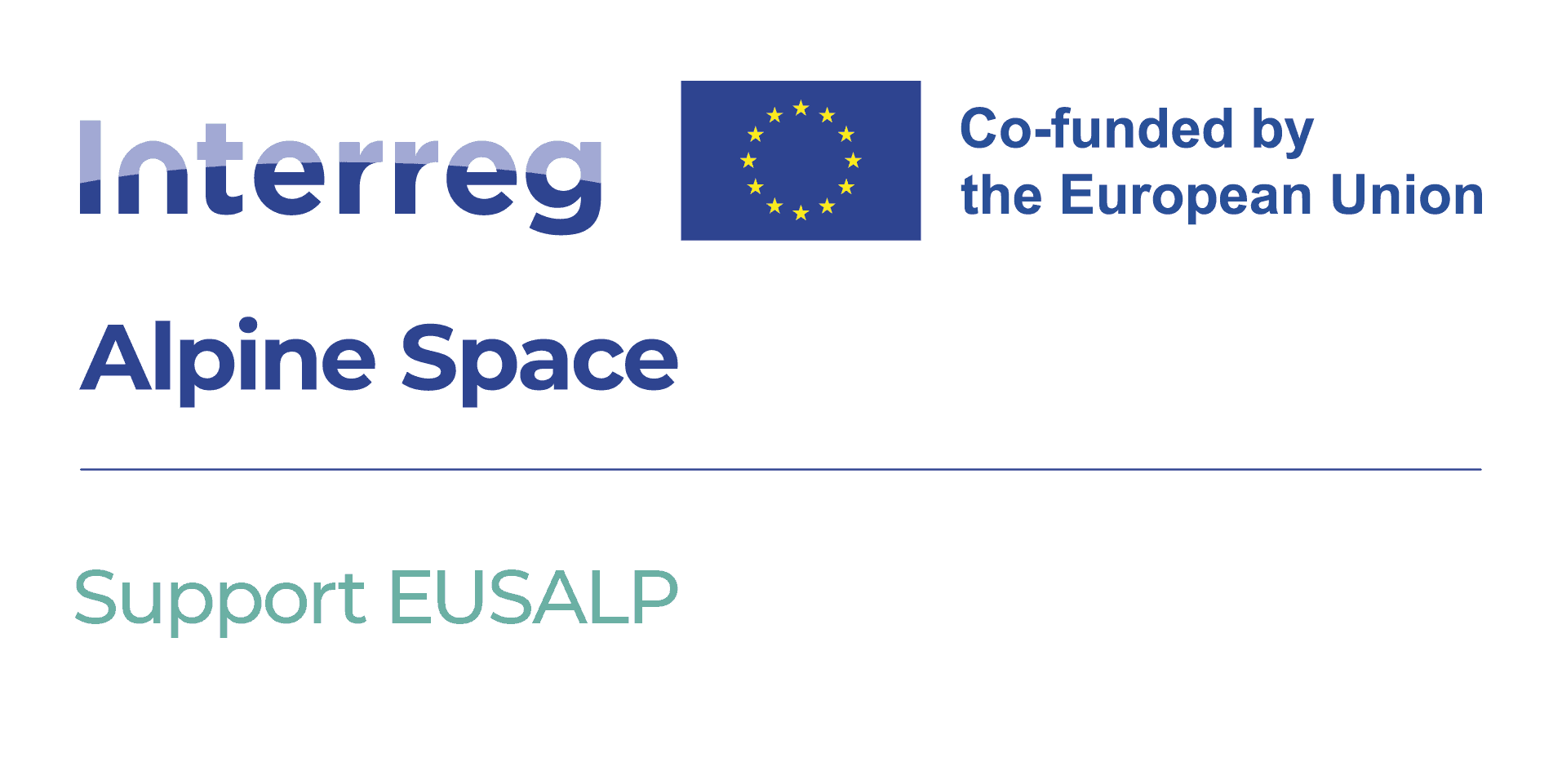
Overview
The Alpine area is composed of contrasting territories and a broad variety of governance systems and traditions. To address common challenges more effectively, the EU Strategy for the Alpine Region (EUSALP) aims to strengthen cooperation and synergies between Alpine countries and regions.
By setting up a technical secretariat (TSS) and a coordination framework gathering 16 partners, the project Support EUSALP will allow a long-term follow-up on EUSALP’s objectives and priorities, as well as the implementation of the 9 Action Groups’ work plans. At the strategic level, the project will support the integration of results into public policies. At the advocacy level, it will increase visibility and strengthen the communication toward its audience, including the general public and youth.
Factsheet
- 2021 – 2027
- Cooperatively managed and developed Alpine region
- SO 4.1 - Enhancing institutional capacity of public authorities and stakeholders to implement macro-regional strategies and sea-basin strategies, as well as other territorial strategies
-
- 01/2023
- 12/2025
- 4.052.500 EUR
- 3.009.375 EUR
Description
Strong territory inhabited by almost 80 million people, the Alpine Region (AR) is at the heart of Europe, being therefore the neuralgic centre of a community of states and regions having to deal with common present and future challenges. The identified challenges in the fields of economic growth & innovation, mobility and connectivity as well as environment and energy are shared by 7 States & 48 regions and only trans-national cooperation may bring the necessary solutions.
The European Commission (Third report on the implementation of EU Macro-Regional Strategies) and the States involved in the European Strategy for the Alpine Region (EUSALP) expressed the need for a stable supporting structure which led to the creation of the Technical secretariat (TSS) with its headquarters in Nice, France. The ambition of the ‘Support EUSALP’ project, which gathers the hosting regional authorities (LP, PP2, PP3) of the TSS as well as the EUSALP Presidencies and the Action Group (AG) leaderships, is to provide EUSALP with an effective technical support in order to aid the establishment of a stronger multi-level governance & implementation of concrete actions on the territories of the EUSALP strategy.
By setting up a coordination framework, the project will allow a sound long-term follow-up on the objectives and priorities set by the political leadership, mainly the Presidencies, the Executive Board (EB) and the General Assembly, as well as the implementation of AGs work plans consisting of concrete activities. Moreover, Support EUSALP’s Project Partners, through the support of the TSS, will act as facilitators on a strategic level by supporting the integration of results into public policies, and on an advocacy level by increasing visibility and strengthening the communication toward its audience, including the general public and youth.
The project involves:
•3 PP of the TSS1 project: Region Provence-Alpes-Côte d’Azur (LP), Region Auvergne-Rhône-Alpes (PP3) & Region Lombardy (PP2);
•the representatives of the EUSALP annual Presidencies 2023, 2024 & 2025: Switzerland - Conference of Cantonal Governments, Slovenia – Slovenian Ministry for Foreign and European Affairs, Austria - Federal Ministry for Agriculture, Forestry, Regions and Water Management;
•the Regions, States and organisations who are leaders or co-leaders of the 9 EUSALP Action Groups. Namely: Lombardy Region - University of Milano (AG1), Region Auvergne-Rhône Alpes & Regione Piemonte (AG2), Provincia Autonoma di Trento (AG3), Region Provence-Alpes-Côte d’Azur (AG4), Regione Autonoma Valle d’Aosta (AG5), Permanent Secretariat of the Alpine Convention and Carinthia (AG6), Soča Valley Development Centre (AG7), EURAC Research (AG8), AURAEE and CasaClima (AG9);
•the Region Bourgogne-Franche-Comté which will manage in particular the youth activities of the EUSALP strategy
Outcomes
-
Number of organisations cooperating with each other and contributing to the multi-level governance of EUSALP
This indicator will assess how organisations have increased their institutional capacity through their participation in transnational cooperation activities.The organisations counted will be filed in a matrix by institutional level (national, regional, local) and the number of interactions (meetings, events) will be taken into account. This will truly allow to understand how this WP has contributed to improve the EUSALP governance system -
Policy Recommendations
Document summarising key policy recommendations from the flagship initiatives and cross sectoral initiatives of the AGs supported by information about targeted policy level & policy gaps

